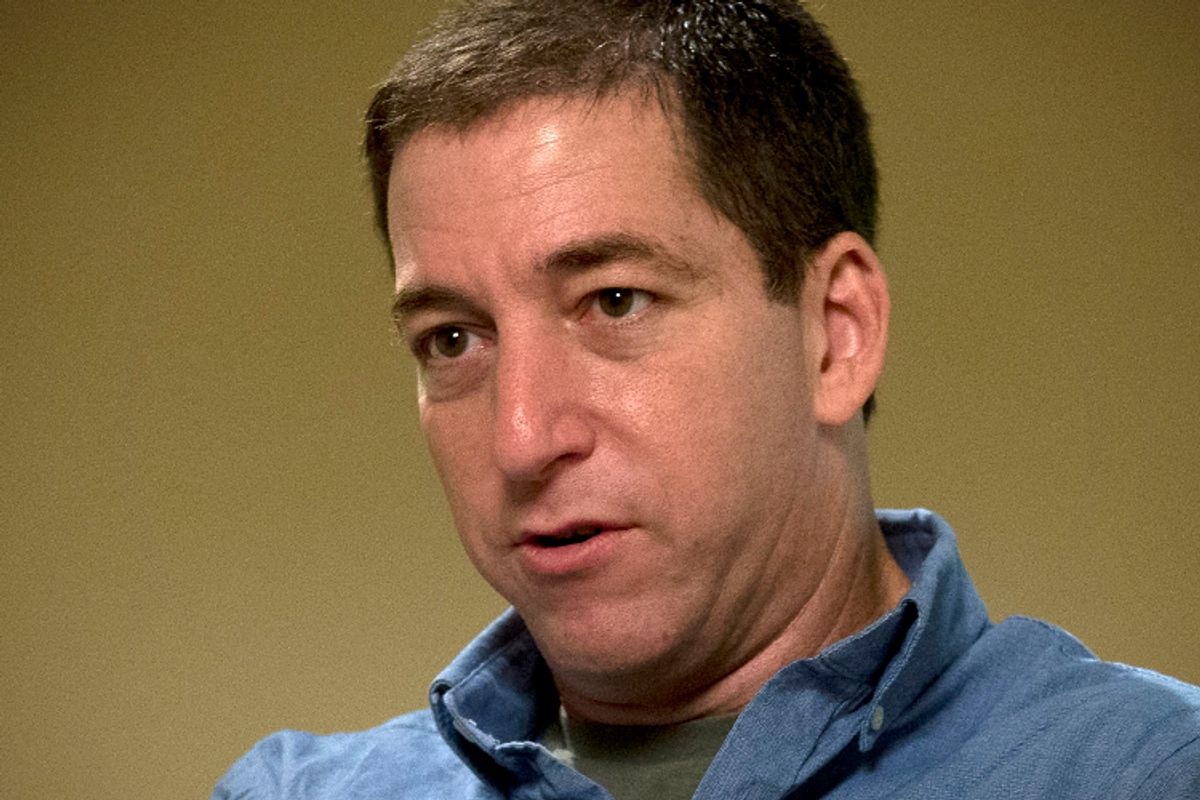

“There’s a phenomenon that exists everywhere, from corporate America to media, where the politics of younger people are different from the politics of some of the older people in these places,” Grim said. Greenwald wrote that he eventually concluded The Intercept itself embraced this so-called “cancel culture” in being reluctant to publish anything (like his Biden column) that might lead to accusations of aiding Trump and his supporters. bureau chief, told Intelligencer that Greenwald’s conflict with The Intercept was part of a larger culture clash between Greenwald, a civil libertarian who objects in the strongest possible terms to any limitations on freedom of speech, and some of his younger left-leaning colleagues, who believe they have a responsibility to call out and try to shut down what they consider hateful or harmful speech.

He always held himself aloof from the newsroom and never, ever soiled himself with the day-to-day business of news gathering.”

“He could have chosen to be a part of the mix, part of the conversation, the daily, weekly conversation about what we should be covering and what stories we were working on,” Hodge said. Even as The Intercept built itself into a full-fledged news organization - complete with robust editing like the kind Greenwald balked at - the co-founder remained apart, writing and publishing his columns with little to no editorial oversight. As a result, most of the staff had little to no interaction with him, according to Intercept staffers who spoke with Intelligencer. Since the beginning, Greenwald had been separated from The Intercept’s U.S.-based newsroom, having lived in Brazil for over a decade. “He’s not somebody who can submerge himself in an organization and be part of a larger whole.” “I’m frankly surprised that he lasted as long as he did, because he’s clearly not a team player,” Intercept deputy editor Roger Hodge told Intelligencer. According to his Substack post, he has spent months in preliminary talks with other journalists and potential financial backers about starting a new media outlet. Greenwald, who did not respond to requests for comment, had already begun to plan his post-Intercept career. While Greenwald’s sudden resignation shocked both his colleagues and the broader world of media, his eventual break with The Intercept was all but inevitable. Toward the end of the Democratic primary, The Intercept published numerous pieces about allegations of sexual harassment against Biden. Said another Intercept writer who requested anonymity, “If you look at the way lots of people on the site have written about Biden, the way described the site and its vehement support of Biden is nonsense.”Īnd in a searing statement, Intercept editor-in-chief Betsy Reed mocked “the preposterous charge that The Intercept’s editors and reporters, with the lone, noble exception of Glenn Greenwald, have betrayed our mission to engage in fearless investigative journalism because we have been seduced by the lure of a Joe Biden presidency.” The Intercept is well known for its hostility to the Democratic Establishment in general and Biden in particular. “I don’t know of anyone on the editorial staff who really likes Biden,” Intercept national-security editor Vanessa Gezari told Intelligencer.

Greenwald’s claim that The Intercept is in the tank for Biden baffled many of his now-former colleagues. “The final, precipitating cause is that The Intercept’s editors, in violation of my contractual right of editorial freedom, censored an article I wrote this week, refusing to publish it unless I remove all sections critical of Democratic presidential candidate Joe Biden, the candidate vehemently supported by all New-York-based Intercept editors involved in this effort at suppression,” Greenwald wrote in a Substack post detailing his reasons for leaving. On Thursday, Pulitzer Prize–winning journalist Glenn Greenwald denounced The Intercept, the news outlet he co-founded six years ago, and announced his immediate resignation.īest known for his reporting on NSA whistleblower Edward Snowden, Greenwald claimed The Intercept was deliberately silencing him to protect Joe Biden.


 0 kommentar(er)
0 kommentar(er)
